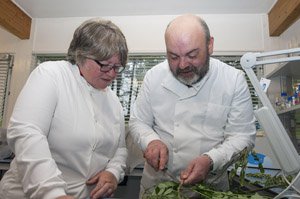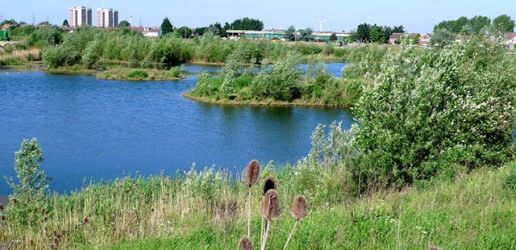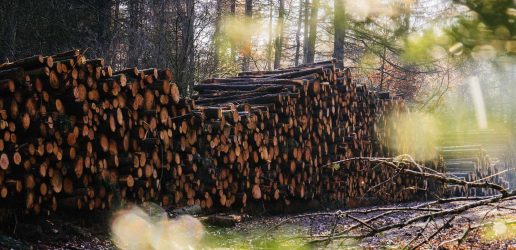
The world-leading role that UK research is playing in the fight against tree and plant pests was demonstrated to Environment Minister Thérèse Coffey recently during a visit to Forest Research in Edinburgh.
The UK continues to lead the way in research to protect our woodlands and tackle tree pests and diseases. Between 2012 and 2019, the UK government will have invested more than £37 million into tree health research.
While at our Scottish base last week, the Minister learnt about the latest efforts to combat tree pests and diseases, forestry’s role in reducing climate change, and the best tree species to increase planting rates.
Speaking after her visit, Thérèse Coffey said:
We can all take pride in the UK’s world-leading forestry science and research which is making a vital contribution towards protecting our native trees and plants from pests and disease.
That is why we are continuing to invest millions of pounds into tree health research to shape the response that government and the forestry industry needs to take to keep our forests and woodlands healthy for future generations.
I also look forward to exploring further how institutions like Forest Research can contribute to government and industry’s continued drive to plant more trees.
Professor James Pendlebury, Chief Executive of Forest Research, said:
Forest Research is internationally renowned for the provision of science, research, evidence and forestry data services in support of sustainable forestry.
We were delighted to host Minister Coffey at our Northern Research Station, where we discussed tree health research and future management regimes to support tree planting in the light of climate change and biotic threats.
During her visit to Edinburgh, the Minister also held a roundtable with representatives from the forestry industry to discuss steps to increase tree planting.
Find out more about our research into tree pests and diseases
Related pages
Recent News
View All news
New land regeneration resources for creating green spaces on previously used land now available
The new resources bring together the latest learnings on land regeneration and climate change, and optimal soil thickness for planting on previously used land.

New national survey launched to strengthen plant pest and disease detection across UK horticulture
UK horticulture and landscaping businesses invited to take part in survey to strengthen non-native plant pest and disease detection and reporting.
Forestry and timber businesses across the UK are being asked to take part in an annual survey programme to collect data about the UK timber industry.

New land regeneration resources for creating green spaces on previously used land now available
The new resources bring together the latest learnings on land regeneration and climate change, and optimal soil thickness for planting on previously used land.

New national survey launched to strengthen plant pest and disease detection across UK horticulture
UK horticulture and landscaping businesses invited to take part in survey to strengthen non-native plant pest and disease detection and reporting.
Forestry and timber businesses across the UK are being asked to take part in an annual survey programme to collect data about the UK timber industry.

